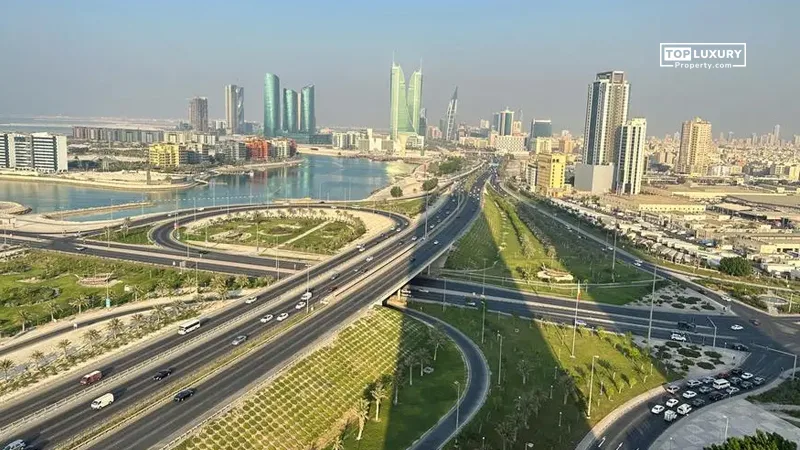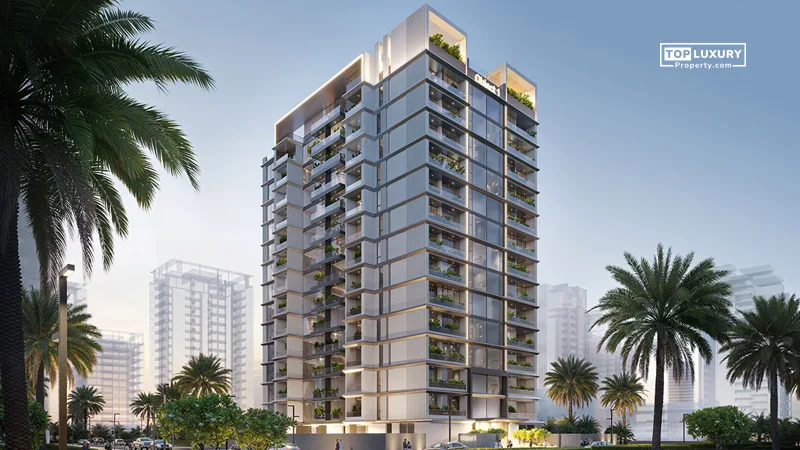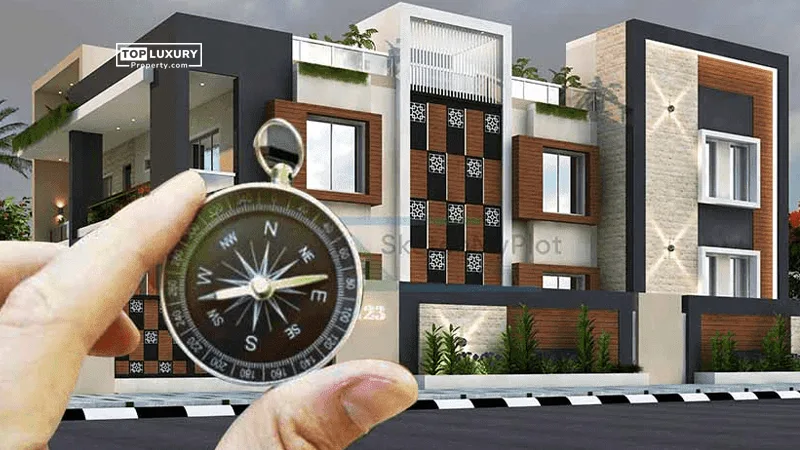Dubai, a premier real estate investment destination, has earned a prestigious image and attracted a diverse range of global buyers, including Canadians. On the other hand, purchasing property in Dubai as a foreign national is a nuanced and intricate endeavor that necessitates meticulous investigation, strategic deliberation, and deft execution. This discussion aims to provide a thorough assessment of the procedure for Canadian investors seeking to buy property in Dubai, elucidating the critical steps they must take to ensure a smooth and successful transaction.
In this blog, we will go over the essential steps and considerations that should be considered when purchasing property in Dubai from Canada.
Dubai Real Estate Vs Canadian Real Estate
Before driving into the property purchase step, it is vital to understand both real estate markets. Both markets offer different advantages for investors. Let’s compare critical metrics like demand, supply, prices, rental yields, and overall market outlook to determine which location may present a better opportunity currently for real estate investment and appreciation potential.
Current Price Trends
Dubai residential prices rose by 18.9% for villas and 19.7% for apartments in 2023, according to the Dubai Land Department. The nationwide average home price in Canada grew by only 2% year-over-year to CAD 646,134 in November 2023.
While prices rose more in Dubai, gains have slowed in both markets recently. Canadian home prices declined 1.1% month-over-month in November, according to the Teranet-National Bank House Price Index. Dubai developers expect residential prices to stabilise in 2023.
Overall, Dubai outpaced Canada’s modest price growth last year and risks slower appreciation, making it preferable to capitalise on further price increases. However, Dubai remains quite affordable compared to its peak, unlike Canada’s overheated, overvalued market.
Demand Remains Strong in Dubai
Transaction data from September 2023 shows robust residential property demand continued in Dubai, with over 13544 property sales recorded, according to the monthly market report from DXBinteract.com. Apartment sales volume rose 63% year-over-year, while villa transactions were up 17%.
Meanwhile, property sales have fallen noticeably across most Canadian cities as higher borrowing costs dampen buyer activity. The Canadian Real Estate Association reported national home sales dropped 5.6% in October, with significant declines in previously hot housing markets like Vancouver, Toronto, and Victoria. Sellers are also facing longer marketing times.
The demand differential suggests Dubai’s property sector remains underpinned by internal economic growth and an influx of overseas buyers, unlike Canada, which now faces a broader economic slowdown. Steady job creation and business expansion in Dubai support ongoing housing needs.
More Balanced Supply in Dubai
Unlike other overheated international property markets that saw excessive new supply, Dubai has maintained a balanced approach. While significant new projects continue to launch, the pipeline is calibrated to match projected demand increases.
Data from CBRE shows Dubai’s overall vacancy rate remains moderate at 6.5% for apartments and 9.5% for villas as of Q3 2023. In Canada, home listings are piling up as more owners list properties, pushing some local markets into outright oversupply. The nesto.ca report notes active listings rising significantly across the country.
The balanced supply-demand dynamic leaves Dubai real estate prices more anchored versus markets dependent on speculative bidding to prop up values in times of heavy oversupply, like parts of Canada face now.
Price Stability in Dubai Versus Declines in Canada
Transaction figures reported by DXBinteract show apartment and villa sale prices in Dubai were largely stable in September 2023 compared to the previous year, with apartments down just 2% while villa price appreciation is 42%. Commercial property prices increased by 14% annually.
Meanwhile, Canadian housing prices have slid in many cities for the first time in decades. It declines between 5-15% reported across most major Canadian hubs as the surge of Covid buyers fades. The globalnews.ca article indicated that Canadian home values averaged just 97% of asking prices in fall 2023. That’s why Peter Norman, Vice President and Chief Economist at Altus Group, says, “We project virtually flat economic growth in 2024, with momentum possibly picking up later in the year. However, the economy isn’t likely to normalise to a better growth rate until 2025,”
The diverging price trajectories point to Dubai real estate holding its value better in this inflationary period, given underlying demand drivers remain intact, unlike parts of the cooling Canadian housing cycle. Price momentum favours further capital appreciation potential for Dubai property.
Higher Rental Yields in Dubai
Dubai’s real estate generates higher rental yields than Canadian properties, a key consideration for investment properties. Rental rates reported by DXBinteract rose 20-30% yearly in September 2023 across apartment and villa categories in Dubai. You can follow Short vs. Long-term rentals to understand how Dubai give better ROI than other countries.
In contrast, Canadian rental markets are softening as household budgets face mounting financial stress from high inflation and interest rates. Yields are declining from previous peaks as landlords offer incentives to attract tenants.
The yield gap exists because Dubai’s job market remains dynamic, supporting ongoing strong tenant demand. Its more moderate supply growth also ensures no oversupply conditions emerge to undercut landlords. Rental cheques remain higher and steadier in Dubai.
More Positive Long-Term Outlook
Economic indicators give Dubai an edge when considering future real estate prospects. The UAE real estate market is contributing 8.2% of Dubai’s GDP. Population keeps rising, with over 4 million residents now, according to DXBinteract. Tourism is rebounding.
In contrast, most economists predict the Bank of Canada will keep raising rates further into 2024, prolonging the housing market downturn, according to the Nesto report. Canada also faces lacklustre 1-2% GDP growth and cooling job numbers ahead.
Dubai is leveraging mega-events like COP28 and Expo 2020 to diversify its oil-dependent economy and attract global firms in industries like finance, technology and real estate. Its property values appear better supported against potential economic turbulence.
Real Estate Regulations
Dubai offers freehold ownership of properties by foreigners on a 99-year leasehold basis. This provides long-term security of investment comparable to Canada’s freehold system. Foreigners can also fully own mainland businesses in Dubai from onshore.
Canada recently announced an Underused Housing Tax (UHT) on foreign, non-resident, non-Canadian homeowners. Dubai remains one of the most tax-efficient investment hubs globally, with no personal or corporate income taxes. This makes after-tax investment returns much higher in Dubai.
Mortgage Rules
Obtaining mortgages is easier in Dubai thanks to lenient loan-to-value ratios allowing up to 80% financing and flexible income eligibility assessments. It has yet to experience the type of regulatory tightening seen in Canada, which has curbed demand through stress tests and higher qualifying rates.
Why Invest in Dubai?
After understanding the difference between Dubai and Canadian real estate, It is time to know why you should invest in Dubai real estate. Here are some top reasons why investing in Dubai by 2040 makes perfect sense.
Cost of Living – Canada vs Dubai
One of the key factors expats consider before relocating is the cost of living. While Canada offers a higher standard of living, living expenses in Dubai are comparatively lower. Rent, groceries, utilities, and dining out are all more affordable in Dubai. This allows investors to maximise savings and profits. With the rising population and developments, rental yields in Dubai are expected to increase substantially. Here is a general cost of daily needs in two different cities
| Item | Toronto Cost (USD) | Dubai Cost (USD) |
|---|---|---|
| Rent for a 1-bedroom apartment | ~2000 | 1900-2100 |
| Rent on outskirts | 200-250 less than center | 800-850 less than center |
| Property buying price/sqm city center | ~9700 | 4100 |
| Utilities/month | 152 (included in rent) | 192 (excluding deposits) |
| Mobile+home internet package | 58+46=104) | 60+92=152 |
| Fuel/liter | 1.1 | 0.9 |
| Public transport single-trip | 2.5 | 1.6 |
| Public transport monthly pass | 117 | 92.6 |
| Taxi base+per km | 3.4+1.3=4.7 | 3.27+0.8=4.07 |
| Bread (1 loaf) | 2.6 | 1.5 |
| Milk (1 liter) | 2.8 | 1.8 |
| Potatoes (1 kg) | 2.5 | 1.1 |
| Groceries average | Higher | Lower (for some items) |
| Cafe lunch for 1 person | 17 | 11 |
| Fast food meal | 10 | 10 |
| Restaurant dinner for 2l | ~90 | 82 |
| Clothes/shoesl | Similar prices | |
| Sports (gym membership) | 49 | 73 |
| Entertainment (tickets etc) | Lower prices | Lower prices |
| Monthly living costs | 5837 | 5445 |
Lower costs combined with zero income tax and no currency exchange restrictions give Dubai an edge over other global cities. You’ll retain more of the profits earned through rentals and appreciation in Dubai. Ensuring a higher rental yield and return on investment makes the emirate very lucrative for real estate ventures.
Dubai 2040 Urban Master Plan
Dubai is extensively developing its infrastructure as per the Dubai 2040 Master Plan to accommodate the projected 25 million people. New builds, districts, and islands are being added to cater to the growing demand. This will increase property prices and demand. The master plan focuses on sustainability, connectivity, and liveability. Under the plan, Dubai will create an integrated services hub meeting 80% of needs within 20 minutes of homes. Investing in any green community projects ensures your property benefits directly from these ambitious climate-centric plans. Gated communities like Dubai Hills Estate and Dubailand are being expanded as lifestyle hubs to attract more residents.
Golden Visa Investment Opportunity
Through the Golden Visa program, Dubai is attempting to become the most preferred destination for global talent and investors. The long-term 10-year residency is granted to those investing AED 2 million or more in pre-approved projects. This removes barriers to property owners’ access to healthcare education for families and eventually apply for citizenship, too.
Access to Green Developments & Lifestyle
Dubai’s dedicated focus on sustainability makes investing in any green community very rewarding. From Dubai Hills Estate to Dubai Land, areas with abundant greenery, cycling tracks and parks are being carved out of the desert according to the Urban Master Plan. Proximity to natural trails and outdoor spaces has become a much sought-after amenity for modern residents. Investing in any green community projects ensures your property benefits directly from these ambitious climate-centric plans.
Engaging Lifestyle and Cultural Appeal
With the rapidly expanding cultural district and next-gen commercial and residential hubs, Dubai is being transformed into a lifestyle powerhouse. New entertainment ventures, alfresco dining avenues, global events, and festivals are upgrading the Emirates’ appeal as a top expat destination. An array of cuisines, more international schools and healthcare facilities have made Dubai very family-friendly.
By 2040, Dubai aims to overtake traditional finance capitals with its thriving creative industries. Your property will benefit immensely from being located in these vibrant new mixed-use communities that balance business with leisure and arts. An evolving lifestyle ecosystem will keep both tenants and capital values satisfied for decades.
Gated Communities and Security
Gated communities are gaining immense popularity in Dubai for the world-class security and seamless community living they provide. Restricted access, high-tech monitoring, neighbourhood watch, private parks and clubhouses offer peace of mind for residents within these self-contained complexes.
By investing in a selected luxury “city within a city”, you are guaranteed tenants who value protection and comfort. These gated developments will remain top rental picks due to the protected environment they provide families. As exclusive enclaves become rarer, the premium on these properties will only widen in times to come.
Flexible Payment Options
Dubai real estate has also evolved to provide global investors superior flexibility of payment or instalments starting from just 5%. Several developers offer 1% payment plans for off-plan purchases. Some projects come with zero down payment schemes as well.
This makes large-scale investing very feasible without needing high upfront commitment. Your capital can be cycled again into new opportunities within the emirate. Mortgages are also available on attractive financing for ready properties.
Steps To Buy Property in Dubai
Get Real-Time Insights on Real Estate Market
Before making any investment decisions, conducting an extensive study and thoroughly understanding the Dubai real estate market is critical. This involves studying local regulations, analysing current market trends, and identifying possible risks and challenges. Furthermore, Canadian investors should consider the exchange rate between the Canadian currency and the UAE dirham, as fluctuations can affect the property’s final cost.
Find a Trustworthy Company or Agent
Navigating the Dubai real estate market can take time and effort, particularly for international buyers. Working with a reputable real estate representative can assist Canadian investors in identifying appropriate properties, negotiating costs, and ensuring a smooth transaction. Selecting an agent with a proven track record, extensive local expertise, and a positive industry reputation is critical.
For a trustworthy real estate company or agent investing in the Dubai property market, TopLuxuryProperty.com stands out for many reasons. They are widely considered to be one of the top luxury brokerages in Dubai.
TopLuxuryProperty.com stands out for several key reasons:
- Extensive local expertise
- Multi-lingual agents
- Proven track record
- Wide property selection
- Comprehensive services
Gather Your Capital
Financing is another essential to any real estate venture. So, you should know financing options in Dubai. This may entail collaborating with a local bank or lender or obtaining financing from a Canadian financial organisation. It is critical to grasp the terms, interest rates, and fees connected with the available financing options and to select the one that best fits your investment strategy and financial goals. You might be able to get a local mortgage with one of the following brokers or banks:
Global banking giant HSBC has a good range of mortgage products for Dubai, including some which are suited to expats looking to invest in Dubai without living there
Mashreq is a UAE based bank which has mortgages for expat residents and non-residents alike
Emirates NBD is another good choice for a wide range of mortgage and loan products.
If you’re not sure what type of mortgage you want, try brokers for advice and offers from up to 20 different banks.
Read Laws, Rules and Sign the Paper
Canadian buyers must follow local rules and tax laws as foreign nationals investing in Dubai real estate. Understanding the visa and residency criteria for owning property in Dubai and the tax implications of owning property overseas is critical. Furthermore, Canadian investors should consult with a tax expert to ensure that they comply with Canadian and UAE tax laws.
File Due Diligence
Due diligence and a thorough property inspection are essential before finalising an acquisition. Several assessments are typically performed during this process, including a physical examination of the property, a review of the title and ownership papers, and an evaluation of any potential liens or encumbrances. It is critical to thoroughly investigate the property to prevent any potential legal or financial issues in the future. This allows you to make an informed and wise decision about the property’s suitability for your needs and guarantees a sound investment.
Properties Wise Steps for Investment in Dubai for Non-Residents
Foreign non-residents in Dubai have a number of choices for investing in real estate. Here are some of your options:
Freehold Properties
Foreign non-residents can buy freehold property in Dubai. Luxurious apartments, Studio apartments, villas, penthouses, and townhouses can be found all over the metropolis. Downtown Dubai, Palm Jumeirah, and Emirates Hills are some famous freehold properties for investment in Dubai for non-residents. If you want to invest in this type of property, you can follow these steps:
Viewings and Inspection: Schedule viewings of potential properties with us. Carefully inspect the title deed, condition and any aspects that could impact rentability.
Submit a Purchase Offer: If a property meets your criteria, instruct with us to submit an official offer or MOU to the seller stating the price and terms you deem acceptable.
Pay an Initial Deposit: To demonstrate serious intent, wire an initial deposit equal to 5-10% of the purchase price to the seller’s escrow account.
Apply for Financing: If you need financing, contact the above-mentioned local bank to understand your financing options if purchasing with a mortgage. As a foreigner, you may qualify for a loan up to 80%.
Obtain Approvals: We will work with the seller’s agent to acquire necessary approvals from the developer and clear any outstanding fees on the property.
Completion at DLD: Schedule an appointment at the Dubai Land Department for completion, where you can pay the remaining balance. Bring your passport.
Register Ownership: Pay Stamp Duty title registration fees and have the property ownership transferred to your name.
Take Possession: Once all paperwork is complete, the seller will hand over the keys and welcome you as the new owner of your Dubai investment property.
Off-Plan Properties
For foreign non-residents in Dubai seeking to capitalise on the city’s thriving real estate market, off-plan properties are a viable investment choice. These properties are available at a reduced price prior to the completion of the development, allowing investors to secure a unit in anticipation of future financial gains. Dubai Creek Harbour, Dubai Hills Estate, and Jumeirah Bay Island are among the best off-plan investment options in the city. Here are the basic steps to Buy off-plan property in Dubai
Inspect Plans and Progress: Schedule a visit to the project site with us to view the architectural plans, progress so far, and a sample completed unit.
Confirm RERA Registration: Ensure the developer has fully registered the project with RERA and complied with all escrow account requirements by law.
Submit a Reservation Form: Provide pertinent details like payment plan preferences and personal details, including a passport copy on the form.
Choose your Unit: Finalize selection by unit type and number with the developer. You can follow our site for a better understanding.
Pay the Initial Booking Fee: Typically, 10-50% of the purchase price is required to secure your unit. Future instalments will match construction milestones.
Receive the Oqood Agreement: Sign and finalise sale registration at the developer’s office. This certificate establishes initial ownership.
Organize Future Payments: Ensure instalments are on schedule and paid into the designated escrow according to contract terms and construction progress.
Hotel Apartments
Dubai’s thriving tourism industry has increased hotel apartment developments, which allow investors to buy a unit in a hotel and make rental income from tourists.
Top Community For Canadian Investors
As you already know the key steps to invest in Dubai, let’s explore some of the most popular communities for foreign investors and expat residents in Dubai:
Al Barsha: Conveniently located near major business hubs, this central community is ideal for working professionals.
Palm Jumeirah: Known for luxury high-rises and waterfront living, this affluent area attracts families and HNW expats alike.
Jumeirah Lake Towers: With schools, hospitals, and malls within proximity, JLT offers a family-friendly environment and excellent safety standards.
The Springs: Inside its lushly landscaped, gated setting lies ultra-spacious Mediterranean-style villas nestled within 15 sub-communities. This is one of the popular villa community in Dubai.
Bluewaters Island: Young professionals flock to this trendy new development for its modern apartments and access to Dubai’s iconic Ain Dubai attraction.
Jumeirah Village Circle: Developed over a decade ago, JVC remains famous for its relaxed atmosphere amid generous communal greens and mid-rise architecture.
Conclusion
Buying property in Dubai as a Canadian investor offers immense potential but requires careful planning and execution. While Dubai’s market continues expanding thanks to events like COP28 and the 2040 Urban Master Plan, Canada faces economic headwinds that cool its previously red-hot housing sector. Other advantages like lower taxes, higher rents, better amenities, and flexible payment options give Dubai an edge.
By partnering with reputable local real estate professionals and following ownership rules, you can capitalise on Dubai’s growth. Freehold properties, off-plan purchases, and hotel apartments suit different investment strategies. With meticulous research and preparation, Dubai real estate can deliver you robust returns for decades ahead.





